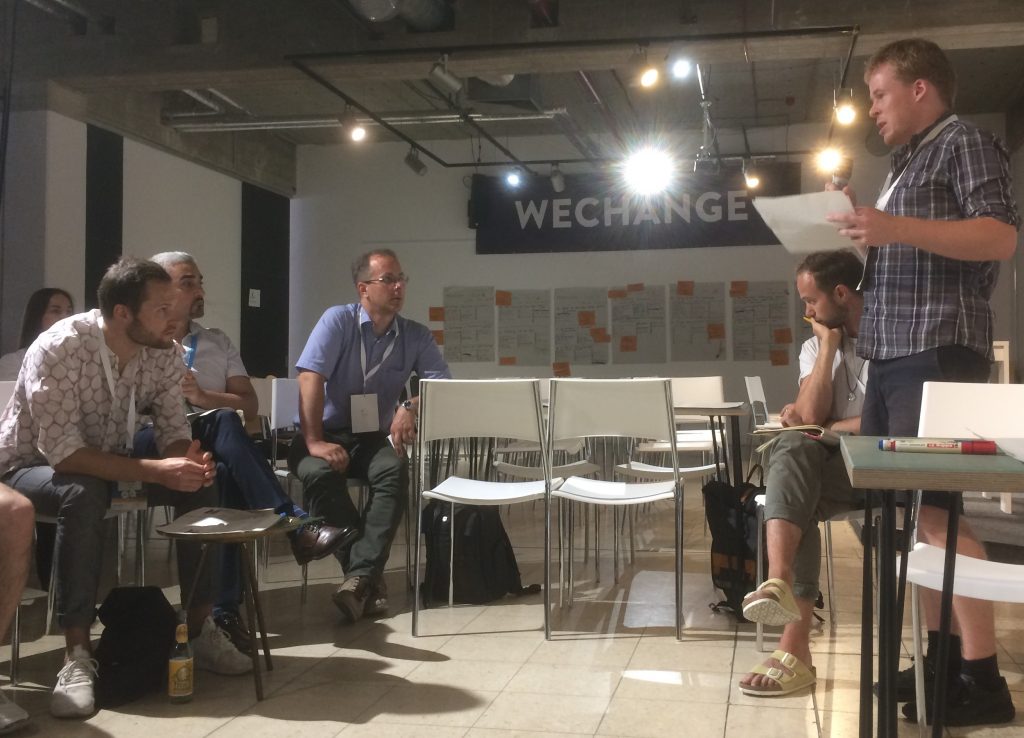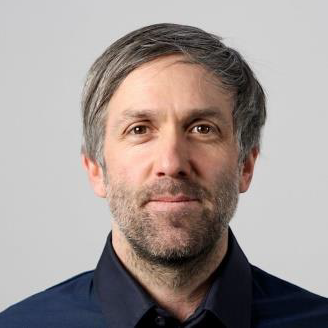
The digital transformation does not only mean that we send e-mails instead of paper letters. It can enable civil society to reorganize, connect and release unknown power. A power to change the world, but also to change how work is done. Digital technologies can undo all hierarchies -or they can undo social achievements like privacy and liberty. What fundamental shifts do we see in civil society? What tools can civil society use and build? And most importantly: How do new platforms need to be designed to be successful, in terms of achieving societal objectives? The workshop will provide insights into civic tech by two digital strategists and invite participants to reflect on their daily digital practices within their organisations and contexts.
Workshopscedule
Key Insights
Presentation about the 4 Reasons why Surveillance Capitalism is dangerous:
On the wechange-Conference “Civil Society 4.0” 2019 in Berlin, supported by the Federal Foreign Office of Germany, the Wechange Cooperative brought together 140 civil activists and Partner from the eastern European countries and Germany. 40 of them participated in this workshop about civic tech, which revealed intresting insights in this new field of plattform developement.
First, the participants realized, that most of the tools they use are proprietary sofware and ether very expensive or doubtful regarding privacy and dataprotection, although there are affordible open source solutions availiable.
In a crowd-Prozess the participants than could define, what civic tech means, compared to commercial tech. Here is the list:
| Commercial tech | civic tech | explenation |
| investor funded | crowd or public funded | |
| for profit | not for profit or even charitable | civic tech still can have a sustainabel business model but no profit margins are guaranteed. |
| adressing commercial/ business & consumers needs | adressing social + public issues or activits needs | |
| costly, or data driven business model | often free even without selling private data or cost-covering-only | Many participants thought, that civic tech never should cost something and a fee allways defines commercial tech. But in the end everybody agreed that open-source software developement still should cost something. |
| low privacy | full data souvereingnity | |
| copy rights / private license | open source | |
| thrive to monopoly | grwoing diversity | as you can reuse open source software easily, plattforms improve, the more them reuse and modify. |
| proprietary and intransparent | community driven & owned | |
| growth and competition oriented | values & purpose oriented | |
| fast development through large investors | step-by-step developement because of small projectfunding | civic-tech often is slower, because they need to apply for money, do fundraising and first need to build a crowd for a feature. |
| exclusive | accessible to all | a digital world without civic tech would be exclusive for poor or small businesses. |
A big discussion raised around the question, rather civic tech software can cost something. But regarding the fact, that fair work is only possible, if developers can earn a decent living, we realized, that this remains the crucial question. Either a Project has to find public funding or it first needs to build its own community of users, who finance the development. Therefore and Agile Projectmanagement is needed, to be able to develope step-by-step.
In the End it came clear, that for a solid democratic society, civic tech plays an essential role. In order to prevent an overpowering monopol like Amazon, Google or Facebook, where even democratic leaders become dependend on, and to prevent an authocratic regime like china, civil society need to be able to understand and create their own tools. And a world without open source standards and ressources like linux, wikipedia or openstreetmap would not work.
So the way to finance civic tech remains the most important open question. A learning process for civil society, to come together, collect ressources from communities and public funding to reveal the possibilities of a connected world, need to be supported. We have to learn Community Entrepreneurship and create a wEconomy.
Map of #civictech Organisations
Download Materials
Moderators:

- Ludwig Schuster is a serial social entrepreneur and chairman of the supervisory board at Wechange eG. He works as a strategy consultant for eco-social changemakers and impact-oriented businesses and is a requested expert in sustainable monetary systems & token design. His most recent initiative is a platform for businesses committed to the economy of the common good.

- Helmut Wolman is the founder of the “Map of tomorrow”(Kartevonmorgen.org), educator for sustainable development and part of Wechange supervisory board. Since 5 years he observes how groups are using digital tools and help organizations to adapt new methods of distributed power and self-management. Helmut@bildungsagenten.org

Sehr spannende Dokumentation/ Interview mit einer Harvard-Professorin über “Überwachungs-Kapitalismus”.
Für Facebook, Google & Co geht es in erster Linie um die Frage, wie sie ihren Nutzer besser verstehen können, um ihren Werbekunden noch bessere und Zielgerichtetere Produkte an zu bieten. Die Funktionalität ist nebensache und muss nur so gut sein, dass die Nutzer dafür ihre Daten hergeben.
Was wir selbst eintragen, Kontaktdaten etc. ist nebensächlich. Viel wichtiger für sie sind die Nebendaten, wie schnell fahren wir, wo halten wir uns auf, wo schreien wir laut…